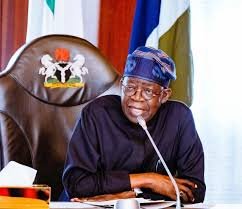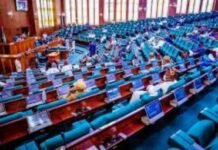President Bola Ahmed Tinubu has signed the Instruments of Clemency and Pardon, formally exercising his constitutional power of prerogative of mercy while directing the exclusion of individuals convicted of grievous crimes from the list of beneficiaries.
The President’s final approval, according to a statement by his Special Adviser on Information and Strategy, Mr. Bayo Onanuga, came after consultations with the Council of State and extensive public input.
It followed a comprehensive review of an earlier list of 175 names, which had generated public criticism over the inclusion of individuals convicted for serious crimes such as kidnapping, drug trafficking, human trafficking, fraud, and illegal possession of firearms.
Following the review, the list was pruned to 120 beneficiaries distributed across four categories: 15 persons granted full pardon (including pre-independence nationalist Sir Herbert Macaulay and the Ogoni Nine), four whose death sentences were commuted to life imprisonment, 15 granted clemency, and 86 inmates whose prison terms were reduced.
Onanuga said the President’s decision was guided by “the seriousness and security implications of some offences, the need to respect the feelings of victims, to sustain public trust, and uphold Nigeria’s bilateral obligations.”
He added that the President viewed justice as a “three-way traffic”—balancing the rights of offenders, victims, and society.
Among those whose sentences were reduced under the Instrument of Presidential Prerogative of Mercy (Reduced Terms of Imprisonment and Sentence, 2025) are several inmates convicted of manslaughter, culpable homicide, fraud, firearms, and conspiracy offences.
Notably, Maryam Sanda (37), convicted of culpable homicide and sentenced to death in 2020, had her sentence commuted to 12 years imprisonment “on compassionate grounds, in the best interest of her children, and for good conduct.”
Others include Yusuf Owolabi (36) and Ifeanyi Eze (33), both serving life sentences for manslaughter, now reduced to 15 years each; Markus Yusuf (41), whose 13-year term was cut to 8 years; and Alhaji Abubakar Tanko (61), whose 30-year sentence was reduced to 20 years.
Under the drug and narcotics category, Patrick Mensah (40) had his 17-year sentence cut to 13 years, while others such as Obi Edwin Chukwu, Tunde Balogun, Lima Pereira Erick Diego, and Uchegbu Emeka Michael received reduced terms of 12 years each.
Dias Santos Marela Christiana (44), a foreign national convicted of importing cocaine in 2017, had her sentence cut from 15 to 12 years “for remorsefulness and deportation.”
In financial and fraud-related cases, Buka Adamu (40) saw his 20-year term reduced to 9 years, while Mustapha Ahmed, Inibong Imayen Nuikidem, Ada Audu, Chief Jonathan Alatoru, and Umannah Ekatte received varying reductions for age, remorsefulness, and good conduct.
In firearms-related offences, Abubakar Mamman (38) and Muhammed Bello Musa (35) had 10-year sentences cut to 7 years, while Nnamdi Anene (67)’s life sentence was commuted to 20 years.
Under maritime and conspiracy offences, 10 convicts — including Bright Agbedeyi, Babangida Saliu, and Jude Saka Ebaragha — had their 12-year terms reduced to 8 years, with fines waived “based on remorsefulness and impecuniosity.”
For unlawful mining, at least 45 inmates from the Medium Security Custodial Centre, Agodi, Oyo State — including Yusuf Alhassan, Abdullahi Isah, Zayanu Bello, and Habeeb Suleman — had their sentences reduced from three to two years following rehabilitation assurances facilitated by Senator Ikra Aliyu Bilbis.
The President also approved a major structural reform: the relocation of the Secretariat of the Presidential Advisory Committee on Prerogative of Mercy from the Ministry of Special Duties to the Federal Ministry of Justice.
![]()










